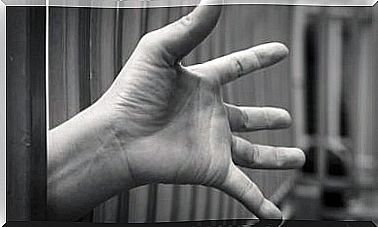How To Make Difficult Changes Simple?

Difficult changes are also those that by rule are postponed indefinitely. Most people have thought of making changes that are extremely lazy; they are seen as a steep slope. We know that at the top there will be a reward, but we get tired just thinking about what we have to do to get there. We want the result, but little or nothing the way.
Sometimes it just takes one effective method. As important as the purpose is the mechanism used to achieve that transformation that is considered necessary. Everything indicates that the strategy is as relevant as the desire to modify something.
The psychologist BJ Fogg, author of the book Tiny Habits: The Small Changes That Change Everything ( Habits tiny: small changes that change everything ) studied this issue thoroughly. Thus he came to the conclusion that change is easier when we decompose this transformation into simple actions. What is the way? We will see it right away.

Difficult changes
J. Fogg is a prestigious researcher who worked in the world of design. While there, he discovered that new product development sometimes did not progress because managers focused more on the complex than the simple.
Later, this psychologist obtained a position at Stanford University. There he continued with his investigations, finding results that pointed in the same direction. It was the starting point for a theory that would lead to a book on how to make difficult changes simple. Today he thinks that simplicity is a very powerful force. Why?
Simple things don’t demand a lot of energy or motivation. Nor do they require special talent or detailed learning. One of the “secrets” to making big changes is segmenting them into a chain of simple modifications.
In other words, by cutting down the slope we are able to appreciate the landings or moments in between in which we can obtain small rewards that reinforce our motivation.
The power of simplicity
One of the difficult changes in life has to do with habits. They cling to life in an impressive way and banishing them becomes an odyssey. In the same way, acquiring a healthy habit takes time – if we have not adopted it until now, it is not where inertia takes us. Usually, you start off with a lot of enthusiasm and soon you leave it, without knowing exactly why.
J. Fogg says that, for example, removing weeds from the garden takes at least five hours, at best, that’s why you never find time to do it. On the other hand, if the proposal is to invest five minutes in it every day, there is a higher probability that it will be fulfilled.
The Fogg method is designed to make difficult changes easy. What its creator advises is to start from the routine as each one has it established. In it, the new habit should be incorporated, little by little.
If someone wants to drink more water to improve digestion, it is not appropriate to propose a special routine to do so, but to add it to any of their daily activities. For example, drink the water while making breakfast.

The method
Actually changing a simple behavior is fine. Obstacles appear in difficult changes, for example, exercising or quitting smoking. What to do in those cases? Fogg advises, first of all, to identify the real problem to be solved.
Perhaps what you want is not exactly to give up cigarettes, but to breathe better and take care of your health. What follows is cultivating tiny habits to achieve that purpose. Maybe doing breathing exercises for three minutes or abstaining from the first cigarette before a certain time. Once that little habit is incorporated, you can move on to the next one.
Of course, this takes longer, but is there a rush? Finally, with each habit that we manage to incorporate, what we will achieve is to save time and get out of that scheme of eternal procrastination. The only important thing is that each of you set goals so small and undemanding that you are sure you can meet them without giving up.
Fogg also points out that technology is a good ally in these efforts. Apps or programs that set reminders, motivate, or help set records, add extra boost, and help keep you going. It is worth trying the path of tiny habits to move towards those great transformations that have been postponed.









